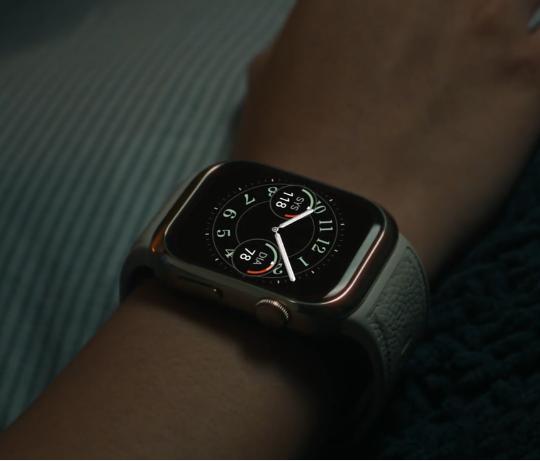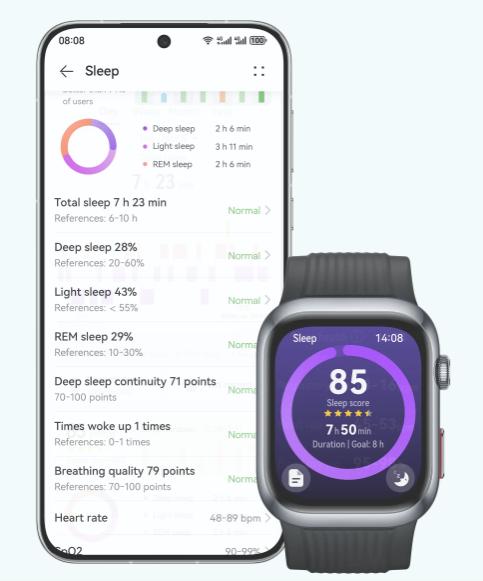Sleep plays a critical role in maintaining overall health and well-being. Yet, many people struggle with getting sufficient quality sleep. Smart devices can help bridge this gap by providing detailed insights into your sleep patterns and offering actionable suggestions for improvement. Let’s explore how these tools can enhance your understanding of sleep and promote healthier habits.

How Smart Devices Help Monitor Sleep Quality
With the advanced features of smart devices, monitoring and improving your sleep quality has never been easier.
1. Track Sleep Stages for Comprehensive Insights
Smart devices like wearables and sleep trackers analyze your sleep stages—light, deep, and REM. These stages are vital for restorative sleep and overall health. For example, deep sleep is crucial for physical recovery, while REM sleep supports cognitive function. Devices like the Huawei Watch D2 can provide a detailed breakdown of these stages, helping you identify patterns and areas for improvement. Understanding how your body cycles through these stages is a key step in improving your sleep quality.
2. Monitor Heart Rate and Stress Levels During Sleep
Many smart devices measure your heart rate and stress levels while you sleep, offering insights into your body’s recovery. A steady, lower heart rate during sleep indicates good rest and relaxation. If you notice irregularities, it might be worth investigating further. For instance, knowing what is considered normal blood pressure—around 120/80 mmHg for adults—can help you gauge if external factors like stress or diet are affecting your sleep. Devices like the Huawei Watch D2 allow you to track these metrics effortlessly.
3. Use Sleep Scores for Easy-to-Understand Feedback
Smart devices often provide a sleep score, which summarizes your night’s rest into an easy-to-understand number or rating. This score considers factors like sleep duration, quality, and consistency. With this feedback, you can set realistic goals for better sleep and adjust your habits accordingly. A higher score typically means more restorative rest, while a lower score may indicate disruptions that need addressing.

4. Identify Sleep Disruptions
From tossing and turning to waking up frequently, smart devices can detect interruptions in your sleep. These disruptions may be caused by factors like stress, caffeine, or environmental conditions. Pinpointing these issues enables you to make targeted adjustments, such as reducing screen time before bed or creating a quieter sleep environment. By tracking changes, you can see which solutions work best for you.
5. Sync Data with Health Apps for a Holistic View
Smart devices often sync with health apps to provide a broader picture of your overall well-being. For instance, combining sleep data with metrics like activity levels, calorie intake, and blood pressure can reveal how different aspects of your lifestyle impact your sleep. Using tools like the Huawei Health app with the Huawei Watch D2 gives you a holistic view of your health, making it easier to identify trends and take actionable steps toward improvement.
6. Set Reminders for Better Sleep Hygiene
Many smart devices offer features like bedtime reminders and alarms to help you stick to a consistent sleep schedule. Maintaining a regular bedtime and wake-up time is crucial for improving sleep quality. These gentle nudges encourage better sleep hygiene, which is key to waking up refreshed and energized.
Conclusion
Smart devices are powerful tools for understanding and improving your sleep quality. By tracking sleep stages, monitoring heart rate, identifying disruptions, and syncing data with health apps, you can make informed decisions about your rest and recovery. When paired with a better understanding of health metrics, these devices provide a comprehensive approach to wellness. Start using smart devices like the Huawei Watch D2 to take control of your sleep and enjoy the benefits of improved rest and overall health.











